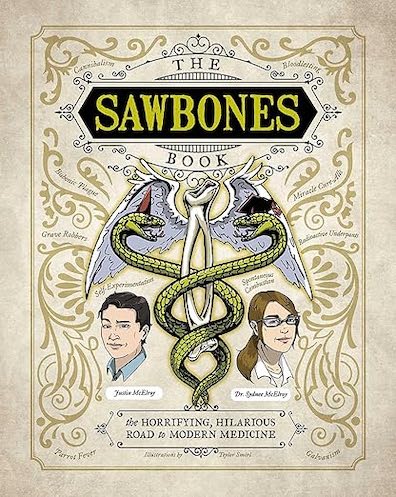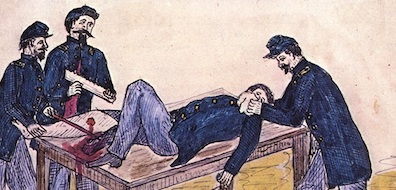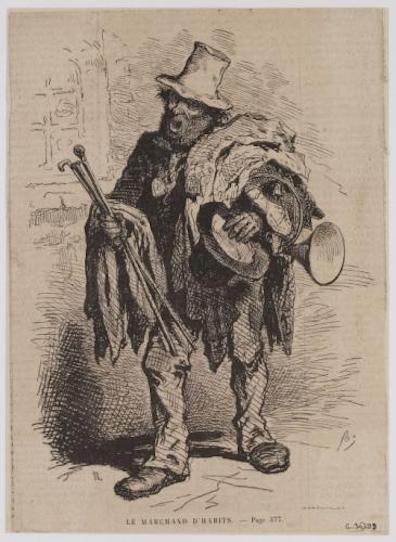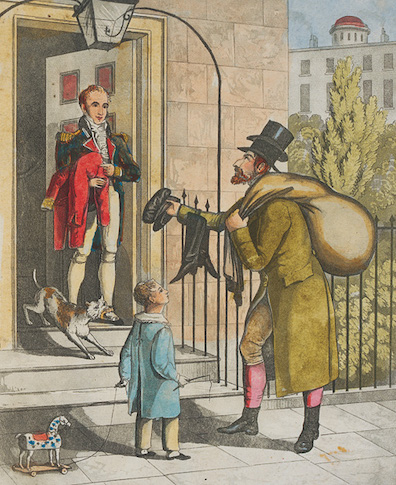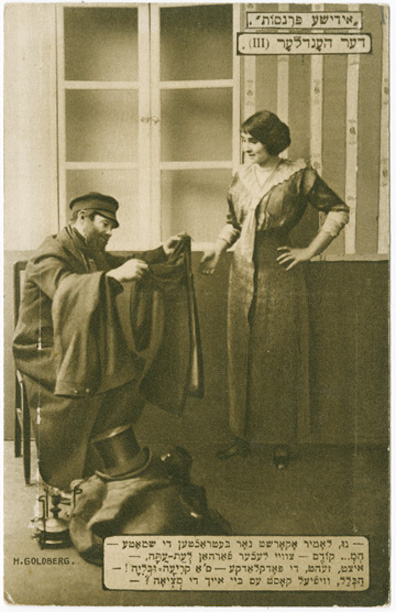"Sawbones" is commonly recognized slang for a surgeon
or physician, and of all the medical students only one, Dixon,
is seen acting like a doctor in the maternity hospital. The
actual Joseph Francis Dixon did not receive his medical degree
from Trinity College until December 1904, and early in the
chapter he is called a "learningknight," but clearly he has
attained some rank that confers responsibilities. The chapter
refers to his treating patients at the Mater Misericordiae
hospital, and when Nurse Callan comes into the common room
with a question she speaks "a few words in a low tone to young
Mr Dixon." When the students spill out onto the street "Dixon
follows," so it may be that he hangs back long enough to
excuse his absence and communicate some instructions.
Apparently he is far enough behind the pack for the others to
wonder what has happened to him, but close enough that he soon
appears: "Hurrah there, Dix!"
Various annotators, starting with Gifford, have identified "Where
the Henry Nevil" as rhyming slang for "Where the devil?"
Rhyming slang is the Cockney way of cryptically replacing a
word with a rhyming phrase––"trouble and strife" for wife,
"apples and pears" for stairs, "bottle and stopper" for
copper, "cuts and scratches" for matches, "early hours" for
flowers, "satin and silk" for milk. The many dozens or even
hundreds of such expressions imply semantic linkage between
the two terms: a wife causes strife, apples and pears are
arranged in tiers on carts, cops put a stop to things, matches
often don't light when struck, flower sellers show up early at
Covent Garden, milk is smooth. Gifford notes two men named
Henry Neville who might be referenced in Joyce's expression,
one a Catholic professor at Maynooth and the other an English
actor known for his roles in Dion Boucicault's plays. He does
not specify how either may resemble the devil.
The second person inquired after, "ole clo," is
somehow associated with old clothes. Gifford surmises that
this would be Bloom, since Sirens reveals that he and
Molly ran a secondhand clothing business when they lived in
Holles Street, and "the phrase also alludes to the tradition
that dealing in old clothes was a Jewish (and somewhat
deceptive or dishonest) trade." These inferences make a lot of
sense. Bloom got his start in adult life as a door-to-door
salesman, like his father, and it seems likely that this
later gave him the idea of starting a used-clothing business.
Most traveling salesmen in the 19th century were Jewish, and
they often received enmity from people who distrusted their
ethnicity, their rootlessness, and the competition they posed
to established merchants. Among the many goods that they
peddled, clothes were perhaps the most famous. In London
Labour and the London Poor (1851), Henry
Mayhew observes that "street-Jews, engaged in the
purchase of second-hand clothes" had been seen on the streets
of London since the 18th century. "Now, as during the last
century," he writes, these people fill "every street, square,
and road, with the monotonous cry, sometimes like a bleat, of
'Clo’! Clo’!'”
These cries evidently became a common way of demeaning Jews.
In a personal communication, Jamie Salomon notes that Maurice
Samuel's The Great Hatred, a study of antisemitism
published in 1940, identifies "old clo' man" as an anti-Jewish
slur (17). Samuel describes someone using the phrase in a way
that suggests it was a widely recognized idiom in the first
half of the 20th century (107). Salomon supposes that the
person referring to Bloom as an old clo' man could be either
Mulligan or Lenehan. Mulligan uses two other common
antisemitic slurs, "sheeny" and "Ikey Moses," to refer to Bloom
in Scylla and Charybdis, and in Wandering Rocks
Lenehan tells M'Coy that Bloom is "not one of your common or
garden... You know...," while in Cyclops he jumps to
the antisemitic assumption that he is greedy with money: "The
courthouse is a blind. He had a few bob on Throwaway
and he's gone to gather in the shekels."
Either of these men might have reason to inquire after
Bloom's location. Lenehan is a working man rather than a
student and could feel some kinship with the Jew on that
score. Mulligan calls Stephen's attention to Bloom in the
library, insinuating that Bloom has sexual designs on him, and
he is startled to find him sitting in the hospital's common
room: "seeing the stranger, he made him a civil bow and said,
Pray, sir, was you in need of any professional assistance we
could give?" The word "stranger" itself may convey
anti-Jewish sentiment, and later in the chapter this word is
associated with both men: "The gods too are ever kind, Lenehan
said. If I had poor luck with Bass's mare perhaps this draught
of his may serve me more propensely. He was laying his hand
upon a winejar: Malachi saw it and withheld his act, pointing
to the stranger and to the scarlet label."
In an alternative interpretation, Slote and his collaborators
suggest that the old clo' man is Stephen, since he is wearing
old clothes
and shoes
that Mulligan gave him. This reading too could be justified
contextually: whoever is speaking might well want to know
whether the man who proposed the drinking trip is still with
them, and a heartbeat later Stephen is seen emerging from the
hospital into the street ("Jay, look at the drunken minister
coming out of the maternity hospal!"). But after the first
chapter no one in Ulysses mentions that Mulligan has
loaned clothes to Stephen, and no one comments on those
clothes looking old. Pasting an antisemitic label on Bloom
seems more plausible both narratively and linguistically.
In context, "Forward the ribbon counter" seems like it
should mean "Let's move on to Burke's," and it does. According
to Partridge (cited by Slote and his colleagues), "ribbon" is
"alcoholic spirits," so a bar serves ribbons over the counter
much as a sewing shop does. (As Gifford notes, in Hades
Simon Dedalus calls Mulligan a "counterjumper's son,"
referring to clothing shops.)
"Sorra one of me knows" seems like it should mean
something like "Sorry, I don't know," and the reality is close
to that. Jorn Barger calls it a Scottish way of saying "Not
one of me knows," inferring that the speaker must be the
Scotsman Crotthers. The expression is equally Irish, however.
Dolan's Dictionary of Hiberno-English calls "sorra,
also sorrow" a word "used to express absence or emphatic
negative." Dolan quotes from Jeremiah Hogan's The English
Language in Ireland (1927): "sorrow as a mild
imprecation and emphatic negative is mediaeval English, and
survives in Scotland and Ireland." One of the examples that he
cites is identical to Joyce's usage: "'the sorra one of me
knows', I don't know." On a notesheet for Oxen
Joyce wrote down the equivalent "Not a one of me knows," and
in Finnegans Wake he uses this expression with a
different verb: "But sarra one of me cares a brambling ram"
(624.14). The etymological connection between negation and
sorrow can be appreciated in an example that Paul Clements
offers in a 24 September 2019 article in the Irish Times.
He observes that "a wife returning from shopping who complains
'Sorra thing could I find' means there was nothing suitable in
the shops––'sorra' was from sorrow, expressing
disappointment."
